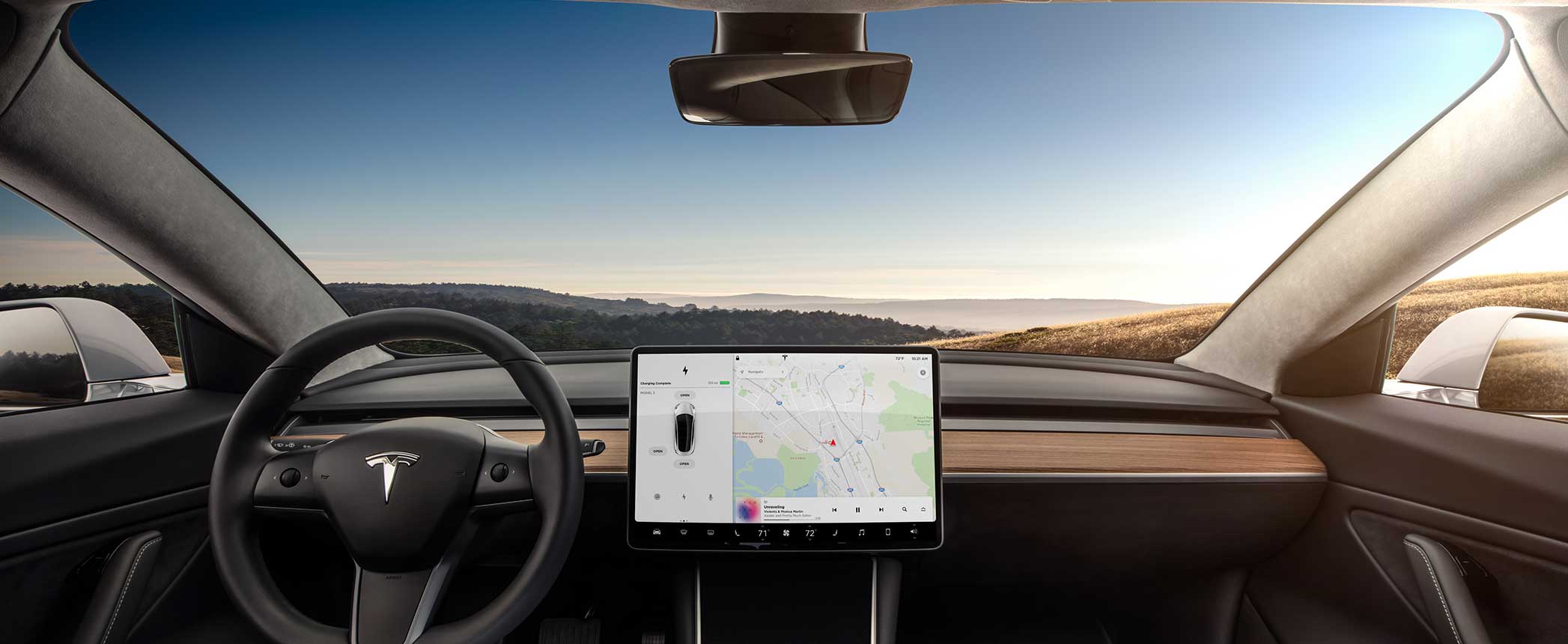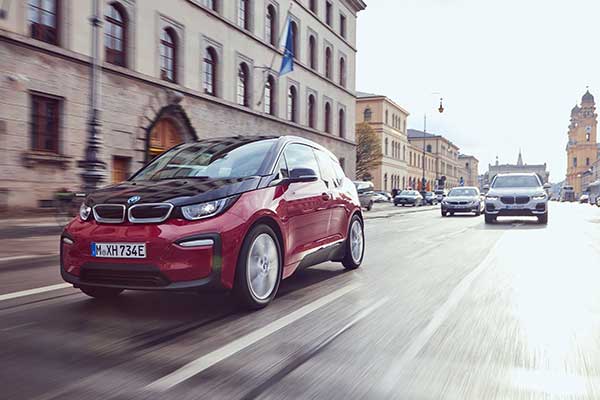
Tesla’s request for a tariff exemption was denied for its Model 3 center screen and onboard computer, both made in China. Elon Musk’s luxury electric vehicle company argued with the United States Trade Representative’s office that the 25% tariff would cause “economic harm to Tesla through the increase of costs and impact to profitability.”
The two components are produced under the auspices of the Made in China 2025 program, a Chinese government plan to promote 10 strategic manufacturing sectors, which include alternative fuel vehicles.
In May, the U.S. government also denied a waiver for Tesla’s autopilot “brain” component. The denials have Tesla owners questioning the Trump administration’s imposition of a 25% tariff on Chinese imports.
Bob Masters of Gainesville, Virginia, drives a Model 3 Tesla, describing it as the most reliable car he has owned in four decades. “I am worried [the denials] will hurt Tesla. They make excellent cars, technology-wise, and are environmentally friendly. Those are the two reasons I purchased one,” he said.
Masters, a 58-year-old civil engineer, believes EVs are the future of vehicles and imposing tariffs while the industry is in the early stages is foolhardy. “If getting parts for production is hindered, then that will hurt the industry just as it’s picking up momentum,” he said.
Requests by GM and Volvo for similar exemptions were also denied.
German automaker BMW Group says it will produce 25 electric models by 2023, reaching its target two years earlier than previously announced. The carmaker moved its deadline forward to keep up with rival original equipment manufacturers’ efforts to meet tightening European Union fleet emissions regulations.
The move should help meet rising demand for BMW’s electrified vehicles. The Munich-based company sees sales doubling by 2021, compared with this year, then increasing an average of 30% annually by 2025, according to Harald Krüger, chairman of the board of management.

By 2021, the carmaker will sell five fully electrified models, including the BMW i3, of which 150,000 units have already been produced. Its plant in Oxford, United Kingdom, will begin manufacturing a full electric Mini this year followed by a full electric iX3 in 2020, which will be made in Shenyang, China. In 2021, the iNext will be produced in Dingolfing, Germany, and the i4 in Munich.
BMW aims to have more than 500,000 cars with full electric or plug-in hybrid drivetrains on the roads by the end of this year.
BMW’s strategy also includes a partnership with Indian-owned Jaguar Land Rover. The two luxury marques will form a team of engineers to research and develop electric drive units, while the two companies will share production planning and joint procurement across the supply chain. Jaguar Land Rover already produces the I-Pace battery electric sports utility vehicle.
To establish a solid foothold in the European EV landscape, U.S. car giant Ford will be the first automaker outside of the VW group to use the German carmaker’s modular EV platform, known as MEB. Starting in 2023, Ford plans to deliver 600,000 EVs based on the MEB architecture through the end of the decade. VW started developing MEB in 2016, a project which to date has cost the company about $7 billion.
The gas-guzzling Hummer could be set for a revival, but this time with an electric drivetrain. The military-style monster was dishonorably discharged from the production line when GM faced bankruptcy in 2009, but Bloomberg reports industry rumors that the brand could return to active duty amidst GM’s plan to roll out 20 new all-electric vehicles by 2023.
Renault’s paid $145 million for a 50% stake in JMEV, the EV division of Jiangling Motors Corp. Group. JMEV was first established in 2015 as a subsidiary of Jiangling, but the capital outlay from the French auto giant makes it a joint venture. JMEV produces a number of EV models badged as JMEV and EVeasy.
This is the second Chinese JV for Renault within a year. In October 2018, the company partnered with Brilliance China Automotive to produce light commercial vehicles, including three EVs.
Hyundai’s 2020 Sonata hybrid will debut a solar roof system that recharges the battery to extend travel distances. The company said that six hours of sunlight gives the battery enough charge for an additional 3.6 kilometers per day, roughly 1,300 km per year.
Engine maker Volvo Penta has unveiled an electric-powered terminal tractor that the company describes as a “proof of concept” as it continues to develop a full electric hauler. Terminal tractors, also known as yard trucks, are used to move trailers in cargo yards and warehouse facilities.
Volvo Penta converted the tractor by fitting it with an electric driveline, tapping into technology it uses in its buses and trucks.
The Swedish company said it wants to collaborate with OEMs and operators to develop the vehicle. Already, Volvo Penta has said it is developing the electric driveline in the first industrialized fire truck, manufactured by Austria’s Rosenbauer, and is also providing the propulsion system to Gothenburg’s full electric ferry.
EVs are going mainstream in Europe, says a new report by the European Federation for Transport and Environment, a continent-wide umbrella transport NGO. The federation forecasts that EV production will exceed 4 million light-duty vehicles between 2019 and 2025, with 60% of them battery EVs.
It attributes one of the main drivers for the growth to OEMs’ push to meet the European Union’s 2021 carbon dioxide emissions target of 95 grams per kilometer. The report estimates carmakers in the bloc plan to bring 210 new BEV and PHEV models to market by 2021.
The picture painted by the report is not all rosy. The federation warns that the U.K.’s exit from the EU will dampen EV growth and reduce EV manufacturing jobs in the country as OEMs relocate production back to mainland Europe.
Australia highways may be too long for potential buyers of EVs to get over concerns about range, but a collaboration between charging infrastructure company Evie Networks and EV Connect, a charging software development company, could alleviate their fears. The two firms are building Australia’s largest ultra-fast highway charging network, with 80 charge points at 42 sites across the country.
In Israel, lithium-ion battery company StoreDot demonstrated it is possible to charge a two-wheel EV battery in five minutes, opening up the possibility of ultra-fast charging for larger vehicles. StoreDot, of which energy giant BP is a stakeholder, hopes its battery technology will reduce charging times to those of conventional refueling.
BP has also been busy in the U.K. Its charging infrastructure subsidiary BP Chargemaster flicked on the switch at its first two ultra-fast 150 kW charge points at a fuel retail station near London Heathrow Airport. Ultracharge 150 will deliver around 160 km of range in 10 minutes, giving Tesla’s Supercharger, which claims 120 km in five minutes, a run for its money. There are currently few cars in the U.K. that can handle this charger type’s power level, however.
Singapore’s first charging points are being installed by Shell at 10 service stations. Shell Recharge 50 kW DC units to about 80% of the battery capacity in about 30 minutes for a fee of $0.40 per kilowatt-hour.
Electrical engineering company ABB and Dover Fueling Solutions, a fuel retail equipment company, have formed a partnership to make DC fast chargers available in certain European locations.
Fiat Chrysler signed agreements with energy management software company Enel X and utility company Engie’s subsidiaries Engie Eps, an energy storage company, and EVBox, a charging point company. The automaker’s aims are to offer charging solutions and services to retail and business customers and reduce the cost of EV ownership.

Sorry, a technical error occurred and we were unable to log you into your account. We have emailed the problem to our team, and they are looking into the matter. You can reach us at cs@lubesngreases.com.
Click here link to homepage